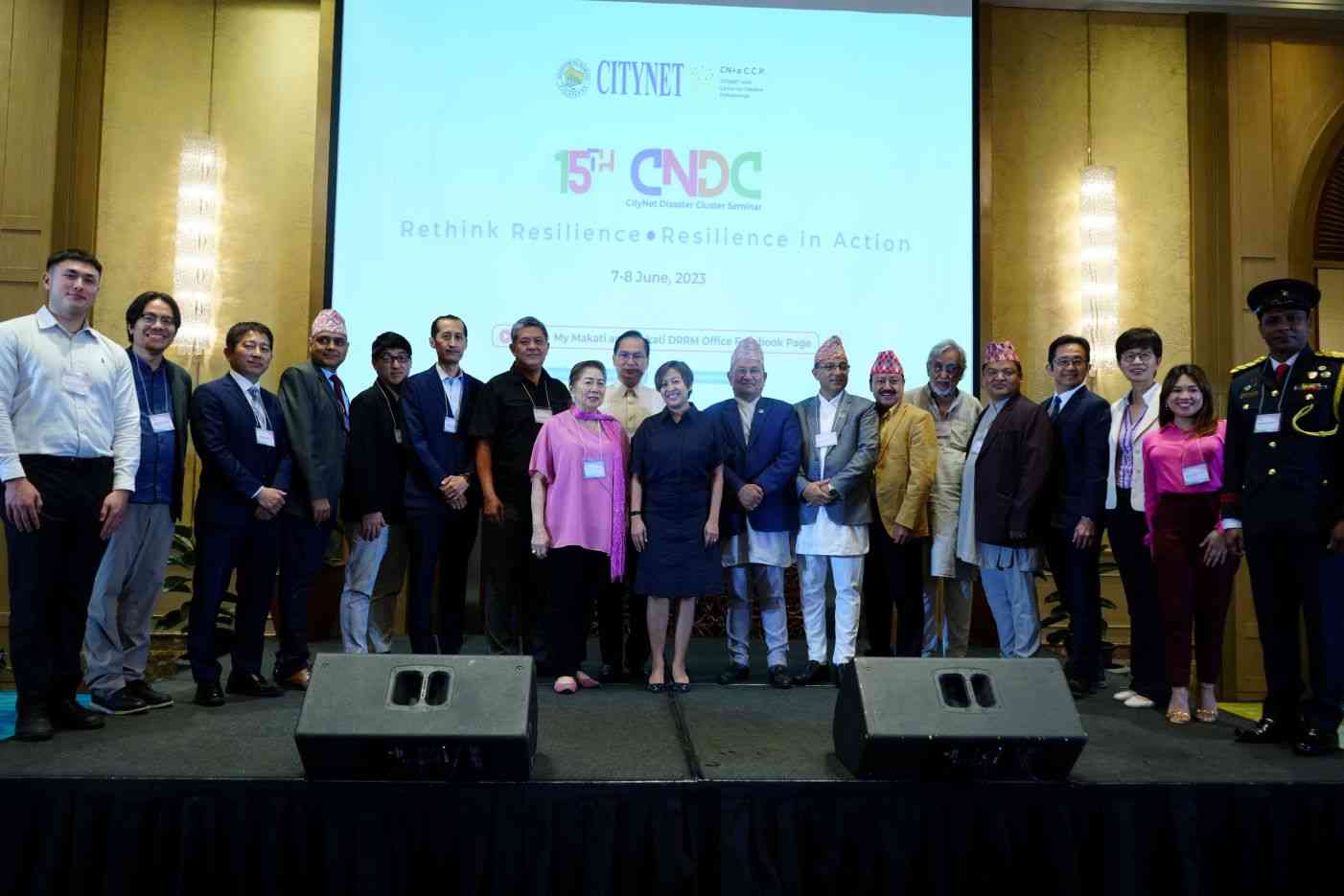Lead City Makati hosts 15th CityNet Disaster Cluster Seminar
CityNet Disaster Cluster seminar is an annual event where members of CityNet disaster cluster gather to review the group's programs and activities and match potential resources with the needs of the participating local governments.
Description
CityNet Disaster Cluster seminar allows the participation of urban and rural stakeholders dealing with disasters. The primary purpose is to share initiatives on disaster risk reduction with various stakeholders and to discuss potential programs that can further enhance the understanding of disasters. The stakeholders include local governments, academia, NGOs, civil society organizations, and the private sector. The seminar also allows participants to observe or take part in actual exercises related to DRR initiatives. the seminar is hosted by different CityNet members each year.
The seminar, led by the Makati City Government and CityNet Kobe Office, was held on June 7 and 8 2023 with the theme "Rethink Resilience, Resilience in Action". Attended by several mayors from Asia including the host city Mayor of Makati as well as over 70 international participants, the seminar focused on sharing DRR knowledge and fostering an environmentally friendly society. Highlighting the increasing risks faced by cities in the Asia Pacific due to factors like climate change and urbanization, the seminar aimed to unite DRR professionals from various backgrounds to discuss best practices and provide guidance on these challenges. Additionally, the seminar explored innovative approaches in DRR, guided by the United Nations Office for Disaster Risk Reduction’s (UNDRR) Global Assessment Report 2022.
This seminar builds on the previous CityNet Disaster Cluster annual seminars from 2014 to 2021 which CityNet Yokohama Project Office, City Government of Makati, and the City of Yokohama led.
Did the Sendai Framework change or contribute to changes in your activities/organization? If so, how?
Given the timeline to achieve the goals under the Sendai Framework, it has allowed our stakeholders to realize the amount of work needed to be done and the specific initiatives that they need to take in order to achieve the specific targets. It has built momentum and brought together stakeholders to partner in the common cause for building resilience from the household level to the city level.
What led you to make this commitment/initiative?
What was your position before making this Voluntary Commitment / prior to the Sendai Framework?
This seminar is a flagship program of CityNet. The initiative is based on the needs assessment of CityNet members each year. With the strong need and interest from CityNet members, the program has been sustained each year and has led to tangible outcomes including partnerships and project implementations in various cities.
Deliverables and Progress report
Deliverables
Deliverables are the end-products of the initiative/commitment, which can include issuance of publications or knowledge products, outcomes of workshops, training programs, videos, links, photographs, etc.
8 cities presented their Letter of Commitment to sign up for MCR2030 for further advancing on their DRR initiatives. The cities are Bangkok, Colombo, Dhangadhi, Lalitpur, Pokhara, Taipei, Taoyuan, and Tansen. The cities will receive necessary follow-up from Makati who leads the MCR2030 initiatives in CityNet.
The seminar was designed for diverse and inclusive stakeholder participation where academe, private sector, youths, NGOs, and civil society members were invited in addition to the local
and national governments as well as international organizations. Each sector shared its initiatives to make societies more resilient. The showcase of collective effort to address disaster risks proactively was an indicator of how disaster risk reduction efforts require multilateral partnerships.
Organizations and focal points
Implementing Organization(s)
Focal points
